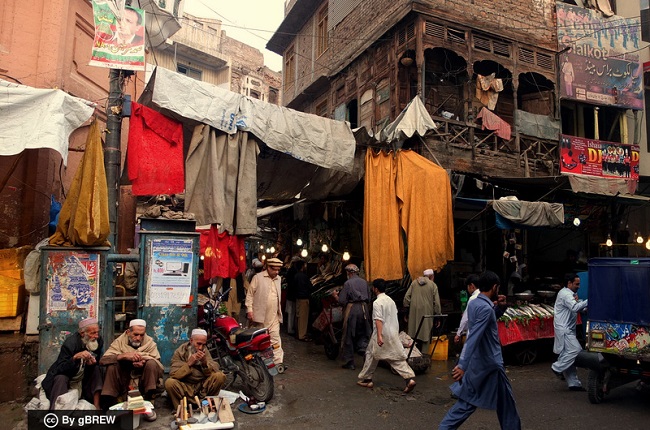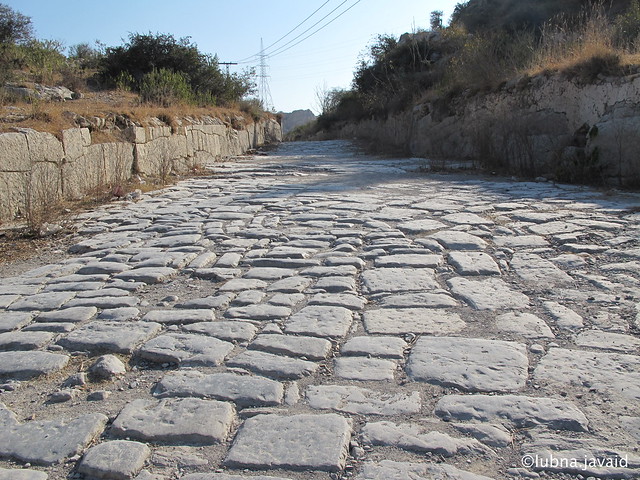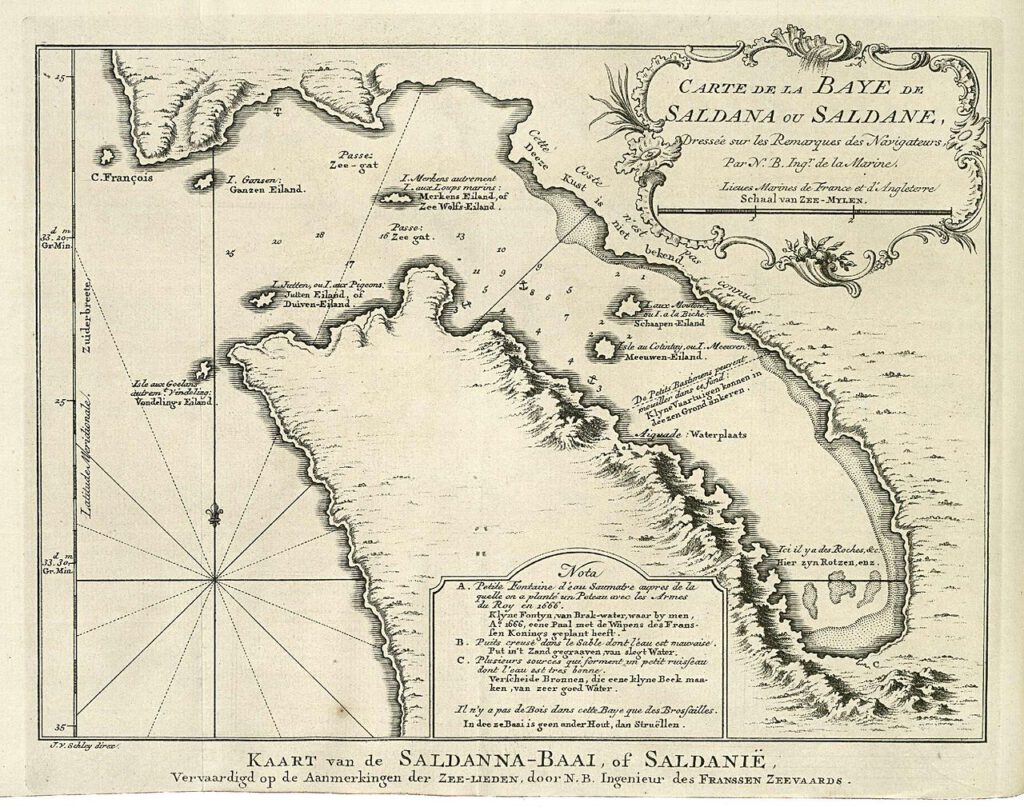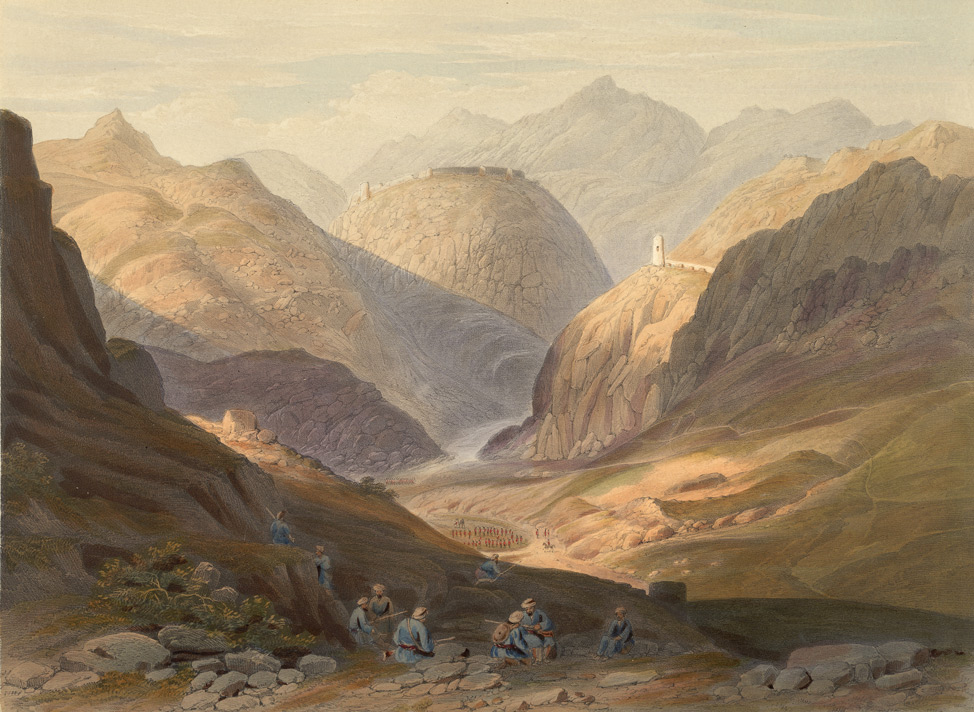If you should think the city of Peshawar is just another edge-of-the-mountain town, dust-blown, tattered and gusty with bluster and intrigue, consider this: the very heart of the old quarter is called ‘Qissa Khwani’, the Storytellers’ Bazaar. Not the bazaar of carpets or of silks, not of walnuts, spices or dried fruit, not of camels, moneychangers, guns or gemstones. It’s the Storytellers’ Bazaar. Name even one city or town whose pulsing heart is remembered for those who chant the majesty and friendship of the mountains, the desperate struggles to survive famine, avalanche, drought and invader, those whose gift it is to turn such troubles into romance. I know of no other.

Though mountain bards are harder to find now, the furniture of Urdu, Pashtu and Persian tales is still in evidence. Like burnished markers, the streets are dotted with samovars fired by charcoal embers. Stoop to enter at those alcoves to find the aromas of cardamom tea, the smoke of hookahs, and in the shadows, the murmur of patrons, who, sipping their tea with gusto, have earnest business to pursue. So rich, so enveloping is this sensory world that an imperial officer once called Qissa Khwani ‘the Piccadilly of Central Asia’. A fairer reading of history would suggest it is rather Piccadilly that ought to have been named ‘Qissa Khwani’.
The tales told in those bazaar shadows have mostly been about struggles, the fate of those whose destiny it is to live at the mountain hinge of vast empires. ‘The Great Game’ describes not only the suspicions and subterfuge of a colonial era, but of powers whose boasts are recorded in cuneiform, in Pali, Greek, Arabic and Cyrillic. Today it is a ghastly story of drones, of IED’s, of exile camps and besieged cities.
But there is another story of particular note that echoes still in Qissa Khwani. It is the story of Abdul Ghaffar Khan, the ‘Frontier Gandhi’. Born with a leader’s flair he set out early to fight for the good of mountain people, a fight to throw off the shackles of British power but with non-violent resistance as his weapon. He told his friends, ‘In real jihad only our foes possess swords.’ There followed years of strikes, boycotts, and imprisonment. But the blowback from British authorities was met with restraint, patience and righteous confidence. It was a costly struggle. In the very precincts of Qissa Khwani, on the occasion of a Salt Boycott, a mass demonstration by his followers, the ‘Servants of God’, stood resolutely facing British machine guns on a Spring day in 1930. Then the guns began to spit fire and bullets. Over two hundred who made their appeal in dignity that day were buried for their courage.
When Khan himself, rich in years and conviction and still under house arrest, died many years later, it is said that tens of thousands marched in silence out of Peshawar through the Khyber Pass to bury him in his hometown. It is a story still told beside the samovars of Qissa Khwani.
Our simple caravan of eight souls followed the track of that very procession through the Kabuli Gate, passing on the way the suggestive ruins of a Buddhist stupa, and a sign that read, ‘Anyone who was ever anyone, passed this way.”



Jonathan, this is another story of which your readers would know but little were it not for your “Having been there; done that” No doubt but that you will have stories to add to that particular hub where stories were told. .
Hello, Harry! If only we could recover even a fraction of the tales this bazaar has heard over the generations. They would tell us what would clinch beyond doubt the follies of the bloodshed to which these mountains have since been witness. Who will listen to the stories tomorrow’s bards will tell at the samovars of Qissa Khwani?
Jonathan, Thank you for the rich sights, smells and sounds of the storyteller’s bazaar! Thank you especially for reminding us of Abdul Ghaffar Khan, the ‘Frontier Gandhi’. His nonviolent “army” of thousands has been too over-looked for years.
Loving the journey! – Earl Martin
Hello, Earl! Yes, the narrative of war has nearly carried the day of story repertoire. But not quite completely. Lest we should despair. That 200,000 should have gathered at his memorial service tells us that the songs of the valley nightingales are still alive, still calling us to sanity and courage.
Keep them comming. If you have my address give me a shout.
Thanks for hanging in there, Jim! A pleasure to think I have eager readers in northern Indiana, there in
Wabash country!
Jonathan, I enjoyed the Storytellers’ Bazaar; your life experiences and wanderings are a treasure. I hope you will forgive a most mundane question. A bazaar strongly implies that something can be purchased there. Neither the account nor the photo reveals what is actually traded. Perhaps it is a general community market known for the storytellers — raconteurs — who will extend your stay there with their tales. What’s the meta-narrative of economic activity?
Hello, Tom! Thanks for reading and probing the scene! Yes, there would certainly have been entertainers active from ancient times in these markets, especially in a caravan town like Peshawar. And the stories of travelers passing through would have added to that storyteller ambiance. (The hills are still full of loose cannons with complicated motives. ) All the while, traders would have been busy provisioning the caravaneers as well as mountain traders desiring valley produce, etc. Today, Qissa Khwani sells everything from staples, to opium, to antique artifacts, to MacBooks to surface-to-air-missiles, provided you know the right people. After all is said and done, I find it fascinating that what is tied to this place in the collective memory from ancient times is the accounts of human drama, of human conundra, of dreams, of spectacular defeat and triumph, and above all of mountain survival.